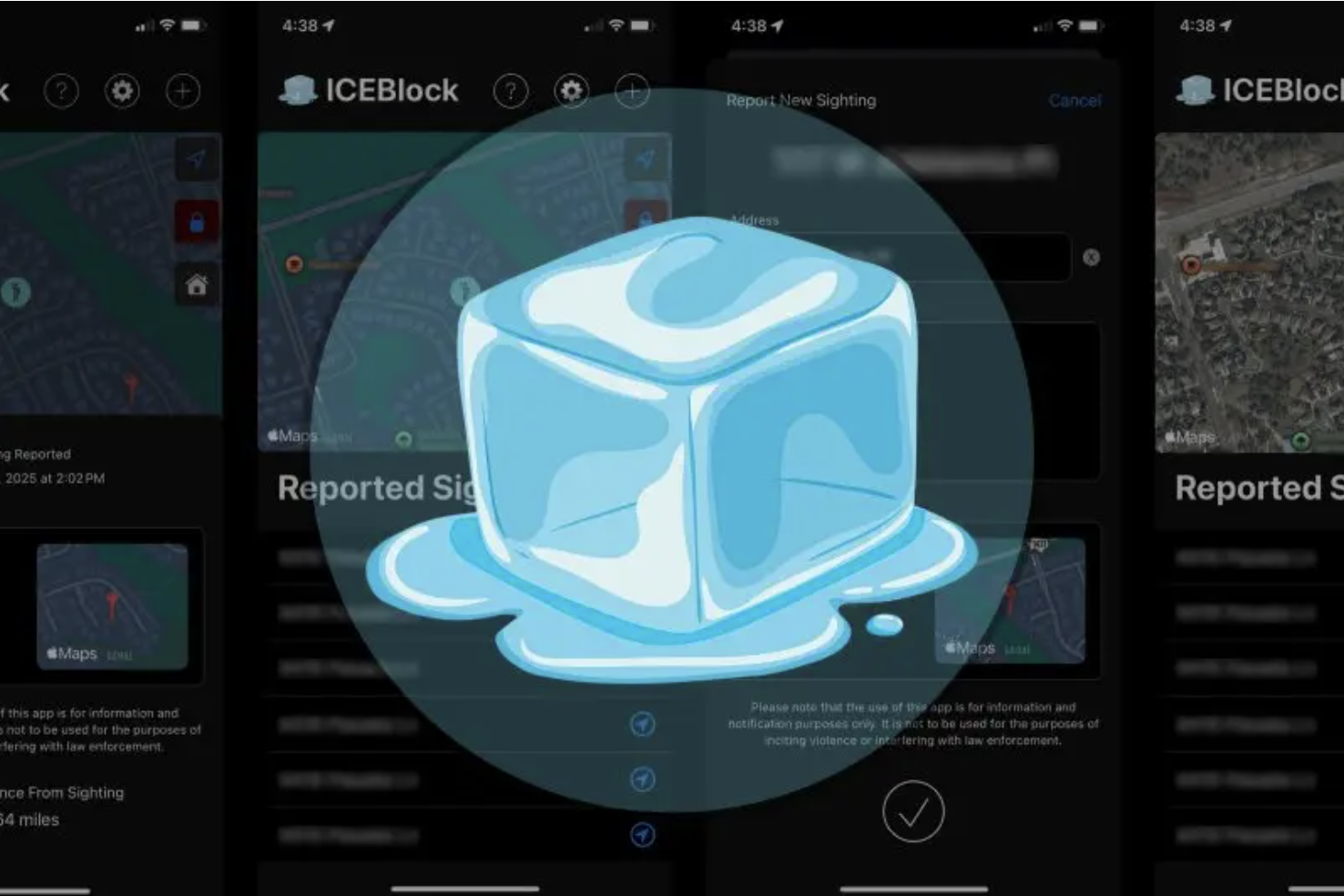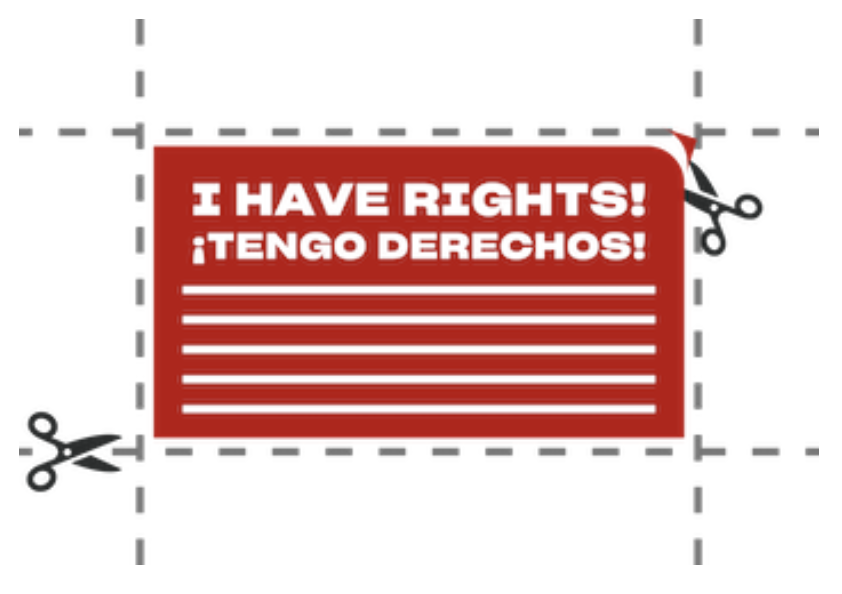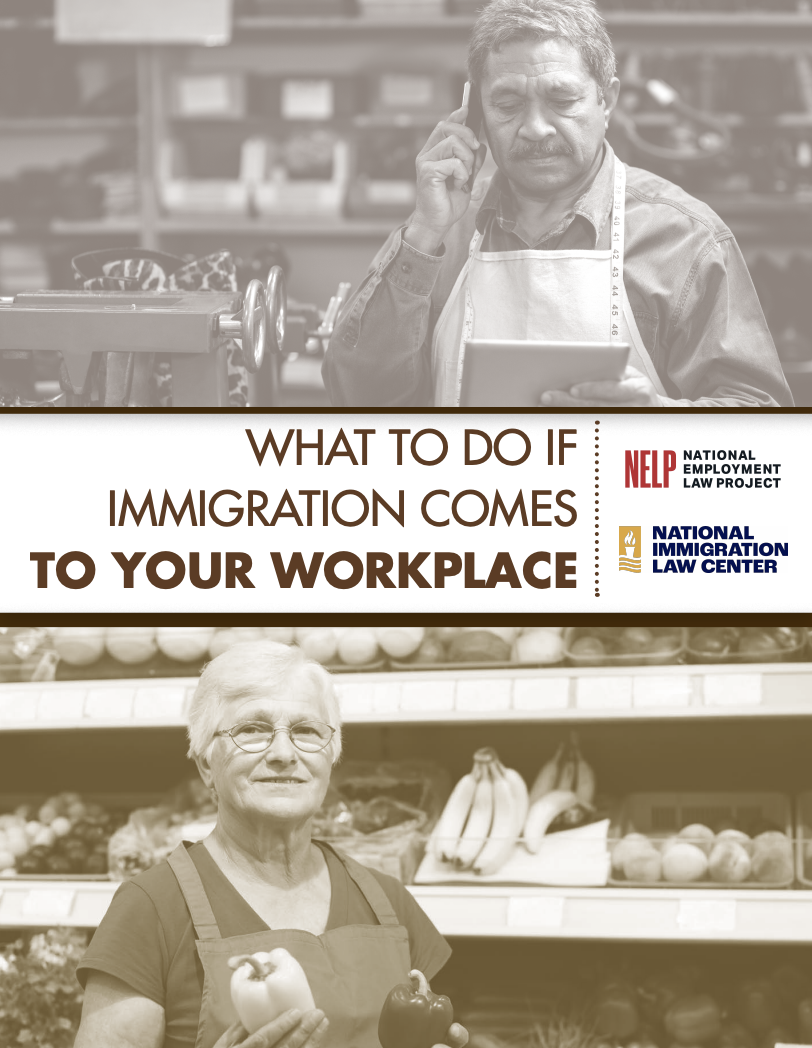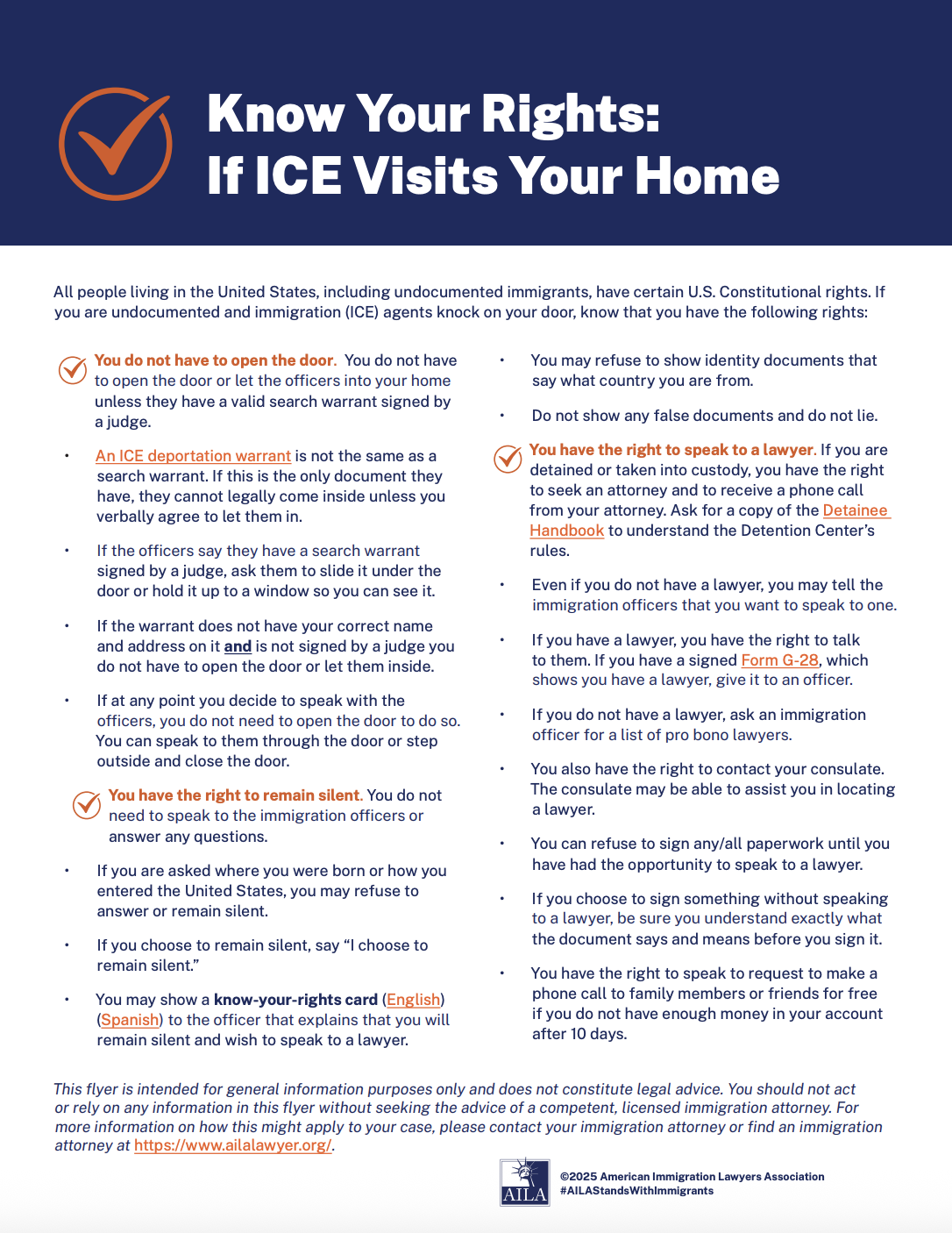Disclaimer
The resources provided here have been collected from reputable organizations and publicly available online sources. Please note that some materials may contain information or legal guidance tailored to the specific laws, policies, or practices of the state or organization that created them. While we strive to share the most reliable and relevant content available nationwide, these materials do not constitute individualized legal advice.
We strongly encourage all individuals to consult with a qualified legal service provider or attorney in their area for advice specific to their circumstances.
At Love Without Borders, we are committed to curating the most helpful, up-to-date resources that can support and protect communities across the country.
Resources
-

ICEBlock App
Stay informed about reported ICE sightings, within a 5 miles radius of your current location, in real-time while maintaining your privacy. ICEBlock is a community-driven app that allows you to share and discover location-based reports without revealing any personal data.
-

Constitutional Rights Card
In moments of uncertainty or tension, knowing your rights can offer a sense of grounding, safety, and dignity. This Constitutional Rights Card is a simple, pocket-sized guide designed to remind you — and those around you — that every person has protections rooted in law and humanity.
These “red cards” provide general examples of how to assert your rights in real-world situations, especially during encounters with immigration or law enforcement officials. While they are a helpful tool for protection and advocacy, they do not offer individualized legal advice. We strongly encourage community members to consult a trusted legal service provider for any specific concerns or questions.
Please print and carry this card physically — do not rely on a digital copy on your phone. In some situations, showing your phone to an agent or officer may be interpreted as consent to search or seize your device.
-

A Guide for Employers: What to Do if Immigration Comes to Your Workplace
This guide provides practical advice for addressing immigration-related actions in the workplace. First published in December 2017, it is available in multiple languages, including Chinese, Korean, Spanish, and Thai.
English Translation: https://www.nilc.org/wp-content/uploads/2024/11/NELP_EmployerGuide_Eng_2025_Final-.pdf
Chinese, Korean, Spanish, and Thai translations: https://www.nilc.org/resources/a-guide-for-employers-what-to-do-if-immigration-comes-to-your-workplace/ -

Know Your Rights: If ICE Visits Your Home
This is a helpful resource from the AILA Client Resources Committee — a series of brief, client-friendly flyers that explain recent immigration law changes, answer common questions, and address everyday concerns in clear, accessible language. They're beautifully designed and easy to share with those who may need them.
https://www.aila.org/library/client-flyer-know-your-rights -

Know Your Rights Door Hanger
This Know Your Rights Door Hanger from the ACLU of Southern California is a powerful tool for protecting your space and asserting your rights.
The outside clearly informs ICE or law enforcement that they are not permitted to enter without a signed judicial warrant. The inside offers a quick, clear reminder of your constitutional rights — especially in moments when it’s hard to remember what to say or do.
Hang it on your door, share with your neighbors, and help ensure that dignity begins at the threshold.
https://www.aclusocal.org/sites/default/files/aclu_socal_icenotwelcome_doorhanger.pdf -

Workplace Guide: Fourth Amendment Workplaces
Fourth Amendment Workplaces is an initiative of Siembra NC’s Make NC Work, which seeks to make our state the best place to work and raise a family in the country.
Fourth Amendment Workplaces put in place measures that reduce the risk of unconstitutional entry by federal agents, and encourage employees to understand their rights in the event of an unexpected visit by law enforcement.
At Fourth Amendment Workplaces employers and employees know how to protect all present from unconstitutional search or seizure. They are trained on:
-How to interact with federal agents
-How to safeguard employees in the event of unconstitutional entry by federal agents
-How to avoid revealing private information about employees
https://docs.google.com/document/d/1lrGpWEuy_dwfXyyx4d8HVTw0y-3fXqp4fHk1bNHhn9o/mobilebasic